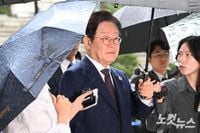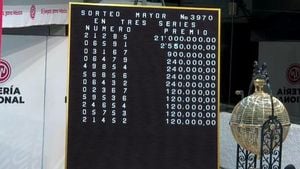In a significant legal proceeding that could impact the upcoming presidential election in South Korea, the Supreme Court has scheduled an en banc hearing for April 24, 2025, related to former Democratic Party leader Lee Jae-myung's alleged violations of the Public Official Election Act. This decision follows the court's swift action to convene the first hearing just two days prior, illustrating the urgency surrounding this high-profile case.
Lee, who is currently a leading candidate for the presidency, attended a public trial at the Seoul Central District Court on April 22, 2025, regarding the 'Daejang-dong payout and Seongnam FC bribery' case. The Supreme Court's en banc, which involves all 12 justices (excluding the head of the Court Administration), is typically reserved for cases with significant social implications or where consensus has not been reached within a smaller panel.
Chief Justice Cho Hee-dae's decision to escalate the case to the en banc reflects a desire to expedite the legal process and ensure fairness for a candidate of such prominence. Justice Noh Tae-ak, who also serves as the head of the Central Election Management Committee, has recused himself from the case due to potential conflicts of interest.
Lee was initially sentenced to a one-year prison term with a two-year suspended sentence for violating election laws, but this verdict was overturned by an appellate court, which declared him not guilty. The prosecution, however, has appealed this decision, leading to the Supreme Court's involvement.
The implications of the Supreme Court's ruling are immense, especially with the presidential election scheduled for June 3, 2025. There are four potential outcomes from the Supreme Court's decision before the election:
- Acquittal (appeal dismissed): If the court confirms Lee's innocence, he will maintain his eligibility to run in the election.
- Reversal of the verdict: A finding of guilt without a definitive sentence would not affect his candidacy.
- Overturning the verdict with a fine of less than 1 million won: This outcome would also leave Lee's candidacy intact.
- Overturning the verdict with a fine of 1 million won or more: In this scenario, Lee would lose his right to run for office.
The timing of the Supreme Court's ruling is critical, especially with the candidate registration deadline set for May 11, 2025. If a ruling confirming a fine of over 1 million won is issued after this date, it would invalidate Lee's candidacy and prevent his party from fielding a replacement candidate.
As the election approaches, discussions are also underway regarding potential amendments to the Criminal Procedure Act, which could allow for the suspension of legal proceedings against a sitting president. This legislative change could significantly alter the landscape of Lee's legal challenges if he is elected.
Legal experts are closely monitoring the situation, as the Supreme Court's decision could set a precedent for future cases involving elected officials. The possibility of legislative changes to halt legal proceedings against a president adds another layer of complexity to this case.
In the meantime, Lee's supporters remain optimistic, believing that a favorable ruling will alleviate the legal risks he faces as he campaigns for the presidency. However, should the Supreme Court find fault in the previous trial's proceedings, a retrial could ensue, complicating his campaign.
The public's attention is keenly focused on the Supreme Court's actions, given the potential ramifications for the election and the political landscape in South Korea. Analysts suggest that the court's decision will not only affect Lee's candidacy but could also influence voter sentiment as the election draws near.
In summary, the Supreme Court's en banc hearing on April 24 is poised to be a pivotal moment in Lee Jae-myung's political career. The outcome will determine not only his eligibility to run for president but also the broader implications for South Korea's political system. With the election date looming, the nation watches closely as the judiciary prepares to weigh in on this consequential case.
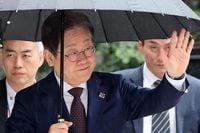
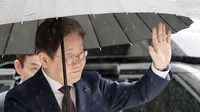
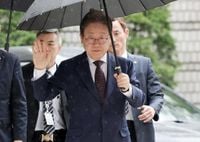
![전원합의체 회부된 이재명 전 대표 재판, 경우의 수 분석 [취재파일]](https://thumbor.evrimagaci.org/VWAXLpdrBVDKF3o3K1OuyFXTYvY=/200x0/tpg%2Fsources%2Fffcbad8c-2ee8-41d7-be6f-098c11af7fe1.jpeg)
